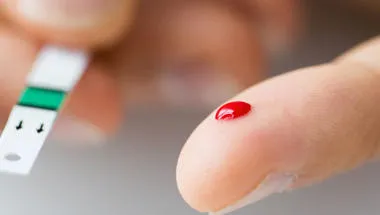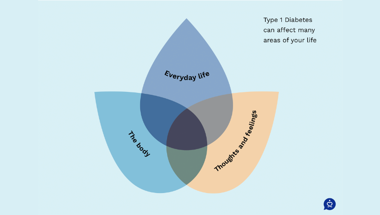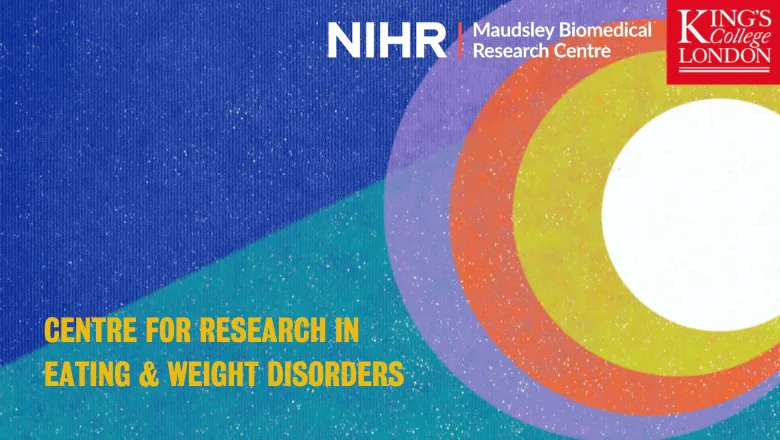
Dr Marietta Stadler
NIHR Clinician Scientist
Research interests
- Biomedical and life sciences
- Diabetes
Biography
In her current role as NIHR Clinician Scientist, Dr Stadler runs a 5 years research project to develop a complex intervention for people with type 1 diabetes and disordered eating (STEADY), together with a multidisciplinary team of diabetes and mental health care professionals. The STEADY project benefits from collaborations with the Diabetes Psychiatry and Psychology group (led by Prof Khalida Ismail), IDEO (Dr David Hopkins), the South London and the Maudesley Eating disorders Unit (Prof Janet Treasure) and KCL department of Adult Nursing (Prof Glenn Robert). Dr Marietta Stadler completed her Internal Medicine Specialist and Diabetologist training in Austria, conducted the national insulin pump audit and authored Austria’s therapy guidelines for insulin pumps. Dr Stadler’s research in the field of Type 1 Diabetes (focussing on the reversibility of pathophysiological features after pancreas transplantation, the epidemiology of late complications, diabetes technology, hypoglycaemia) resulted in a higher research degree (Habilitation, venia docendi). Dr Stadler joined the King’s College London (KCL) Diabetes Research Group as an NIHR Academic Clinical Lecturer in Diabetes in 2013 and was awarded an NIHR Clinician Scientist Fellowship in 2018. She also completed a UK Certificate of Completion of Training in Endocrinology and Diabetes.
The publication feed is not currently available.
Research

Type 1 Diabetes Research Group
We are experimental medicine researchers and clinical academics performing mechanistic and clinical studies, using qualitative, quantitative and neuroimaging techniques, and clinical trials to investigate aspects of diabetes, including mechanisms and treatment of hypoglycaemia, eating disorders and appetite control.

Diabetes, Psychiatry & Psychology
The group has a unique and internationally recognised collaboration with the Diabetes Research Group at KHP.

Optimising the Delivery of Diabetes Distress-Informed Care for its Prevention, Detection and Management in Adults with Type 1 Diabetes: A Hybrid Effectiveness-Implementation Programme (D-stress Study)
The D-stress study develops a new programme that combines the best of three existing treatments to detect, manage and prevent type 1 diabetes distress in the UK
Project status: Ongoing
Events

Research Showcase in Eating and Weight Disorders
Join us to celebrate the launch of the Centre for Research in Eating and Weight Disorders at King's College London, and discover research from the NIHR...
Please note: this event has passed.
Spotlight
Working together to improve healthcare services
How do you improve healthcare services for patients and staff alike? By bringing healthcare professionals, patients, carers and relatives together to identify...

The publication feed is not currently available.
Research

Type 1 Diabetes Research Group
We are experimental medicine researchers and clinical academics performing mechanistic and clinical studies, using qualitative, quantitative and neuroimaging techniques, and clinical trials to investigate aspects of diabetes, including mechanisms and treatment of hypoglycaemia, eating disorders and appetite control.

Diabetes, Psychiatry & Psychology
The group has a unique and internationally recognised collaboration with the Diabetes Research Group at KHP.

Optimising the Delivery of Diabetes Distress-Informed Care for its Prevention, Detection and Management in Adults with Type 1 Diabetes: A Hybrid Effectiveness-Implementation Programme (D-stress Study)
The D-stress study develops a new programme that combines the best of three existing treatments to detect, manage and prevent type 1 diabetes distress in the UK
Project status: Ongoing
Events

Research Showcase in Eating and Weight Disorders
Join us to celebrate the launch of the Centre for Research in Eating and Weight Disorders at King's College London, and discover research from the NIHR...
Please note: this event has passed.
Spotlight
Working together to improve healthcare services
How do you improve healthcare services for patients and staff alike? By bringing healthcare professionals, patients, carers and relatives together to identify...

